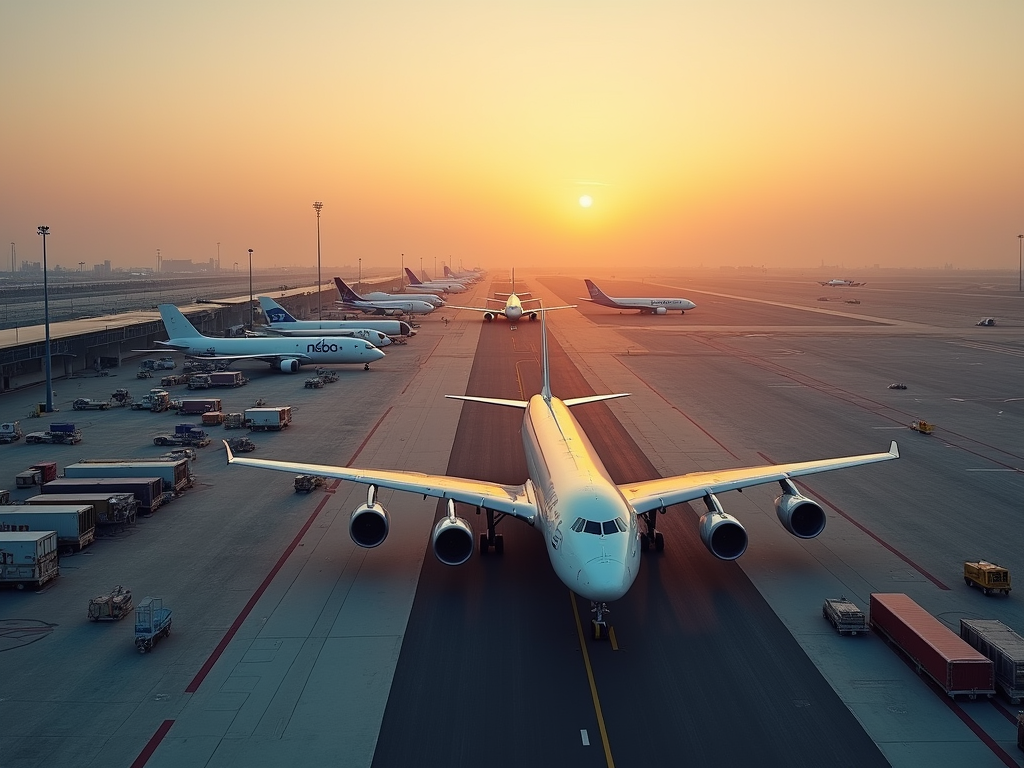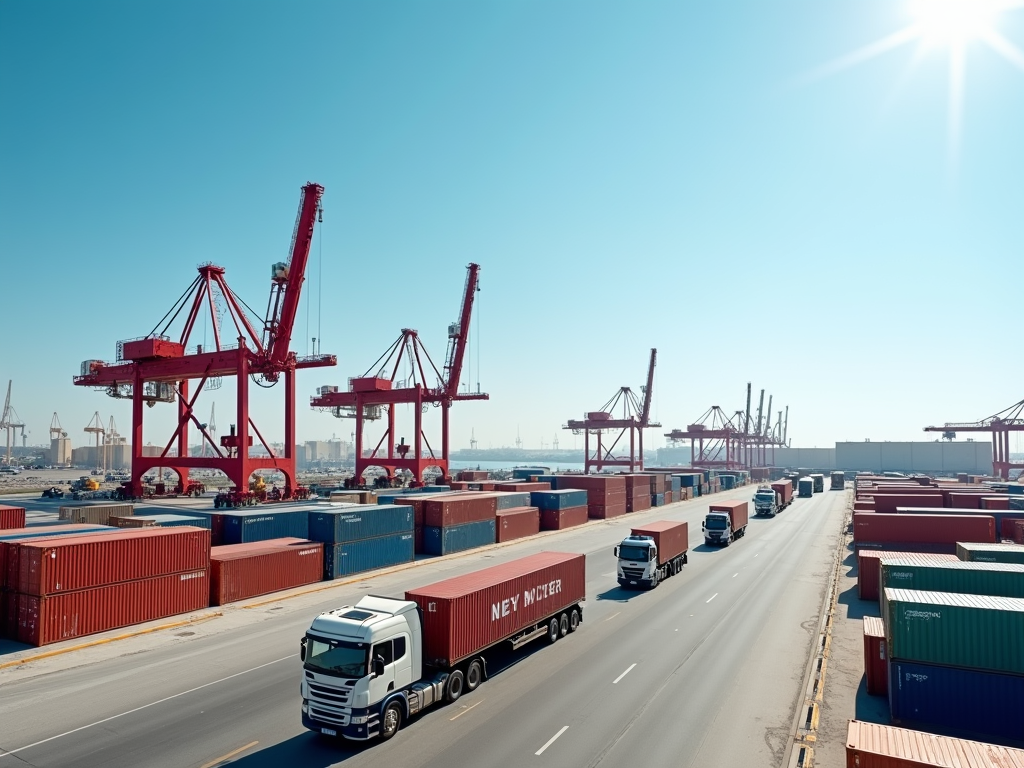Dubai’s logistics sector serves as a critical hub in global supply chains, facilitating smooth international trade through its strategic geographic location, advanced infrastructure, and sophisticated service offerings. With ports, airports, and an extensive road network, Dubai has positioned itself as a key player in connecting East and West, making it an ideal launchpad for distributing goods worldwide. By leveraging modern technology and a pro-business environment, Dubai’s logistics industry not only supports local businesses but also enhances global trade efficiency.
Strategic Geographic Location

One of the primary drivers of Dubai’s logistics prominence is its geographical advantage. Positioned at the crossroads of Europe, Asia, and Africa, Dubai provides unparalleled access to high-demand markets. This strategic location offers numerous benefits:
- Proximity to Major Markets: Dubai’s location minimizes travel time for goods reaching major markets such as Europe, South Asia, and Africa.
- Ideal Time Zone: The city’s time zone allows for excellent coordination of global business operations across different regions.
- Gateway to Emerging Markets: Dubai acts as a springboard for accessing the fast-growing economies in the Middle East and North Africa.
These attributes make Dubai a preferred logistics hub for businesses aiming for efficient supply chain solutions. In addition, the Emirate attracts multinational corporations seeking to streamline their operations, thereby further solidifying its position as a logistics powerhouse in the global landscape.
Advanced Infrastructure and Facilities

Dubai boasts world-class logistics infrastructure that significantly boosts its supply chain capabilities, including:
- Dubai International Airport (DXB): One of the busiest airports globally, DXB serves as a major cargo hub, facilitating wide-ranging freight services that enhance speed and efficiency.
- Jebel Ali Port: The largest man-made harbor in the world, Jebel Ali Port is a key maritime gateway that handles a substantial volume of container traffic annually.
- Free Trade Zones: These zones provide tax advantages and regulatory exemptions, attracting businesses to set up operations in logistics and distribution.
With continuous investment in expanding and modernizing its infrastructure, Dubai ensures it meets the growing demands of global supply chains. The ongoing development of smart technologies and automation further enhances operational efficiency, making it easier for businesses to adapt to changing market conditions.
Technological Integration in Logistics
The integration of technology plays a vital role in the development of Dubai’s logistics sector. Advanced technologies such as automation, artificial intelligence, and IoT have transformed traditional logistics operations into streamlined, data-driven processes. Some key technological advancements include:
- Automated Warehousing: Robotics and automation systems improve inventory management and reduce labor costs.
- Real-Time Tracking: IoT solutions allow for the real-time monitoring of shipments, enhancing transparency and reducing delays.
- AI-Powered Analytics: Companies utilize predictive analytics to forecast demand, optimize routes, and reduce operational inefficiencies.
By adopting these innovations, Dubai’s logistics sector has positioned itself as a leader in operational efficiency and advanced supply chain management, ensuring businesses have the agility needed to respond to global demands quickly.
Regulatory Environment and Business Support
Dubai’s business-friendly regulatory framework significantly supports its logistics sector’s growth. The government has implemented policies aimed at attracting foreign investment and simplifying the logistics process. This supportive environment includes:
- Tax Incentives: Attractive tax rates in free zones encourage logistics startups and multinational companies to establish a presence in the region.
- Streamlined Customs Procedures: Efficient customs processes reduce clearance times, enabling faster movement of goods.
- Investment in Workforce Development: Training programs ensure that the workforce is equipped with the skills needed to thrive in a technologically advanced logistics landscape.
These factors contribute to a sustainable logistics ecosystem that enhances Dubai’s position on the global stage, attracting international players looking for prime locations to base their operations.
Conclusion
In conclusion, Dubai’s logistics sector plays an indispensable role in enhancing global supply chains through its strategic location, advanced infrastructure, and integration of technology. The supportive regulatory environment further empowers businesses to thrive, making the city a global logistics leader. As trade continues to evolve, Dubai’s logistics capabilities will be crucial in meeting the demands of a dynamic market, ensuring efficient and reliable supply chain solutions for global businesses.
Frequently Asked Questions
1. How does Dubai’s location benefit the logistics sector?
Dubai’s location at the crossroads of major global markets allows for quicker transportation of goods, reduced shipping times, and easier access to emerging markets, significantly enhancing logistics operations.
2. What technological advancements are shaping Dubai’s logistics industry?
Innovation in automation, IoT, AI, and data analytics has transformed traditional logistics operations into efficient, data-driven processes that improve operational efficiency and reduce costs.
3. What are the benefits of Dubai’s free trade zones for logistics companies?
Free trade zones in Dubai offer tax incentives, regulatory exemptions, and streamlined customs processes, making it easier for logistics companies to operate and grow their businesses.
4. How does the Dubai government support logistics sector growth?
The Dubai government provides a supportive regulatory environment through investment incentives, workforce training programs, and enhanced customs procedures, encouraging both local and international businesses to thrive.
5. What role does Jebel Ali Port play in Dubai’s logistics sector?
Jebel Ali Port is a major maritime gateway that handles a significant amount of container traffic, providing logistical efficiency and supporting Dubai’s role as a central hub in global supply chains.
